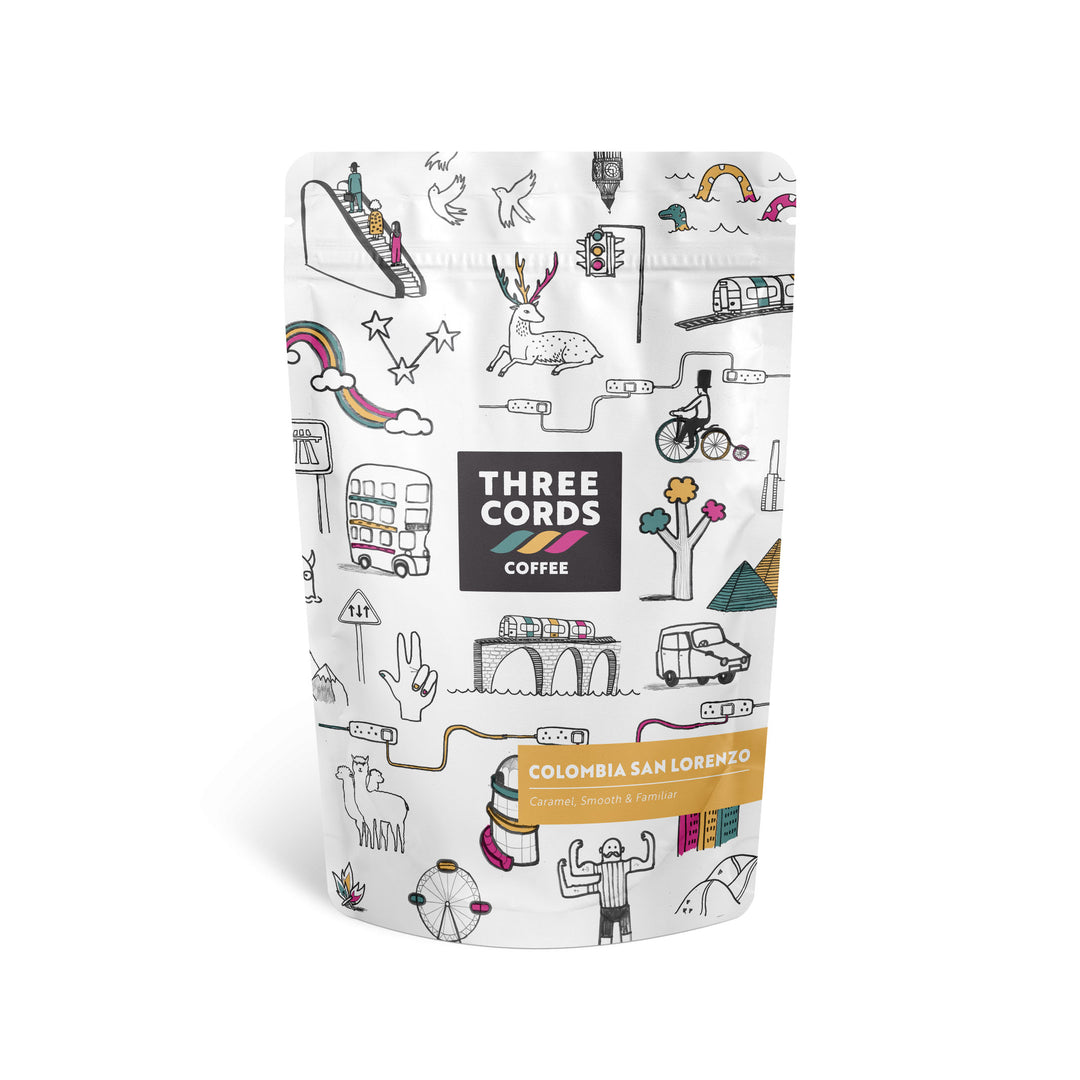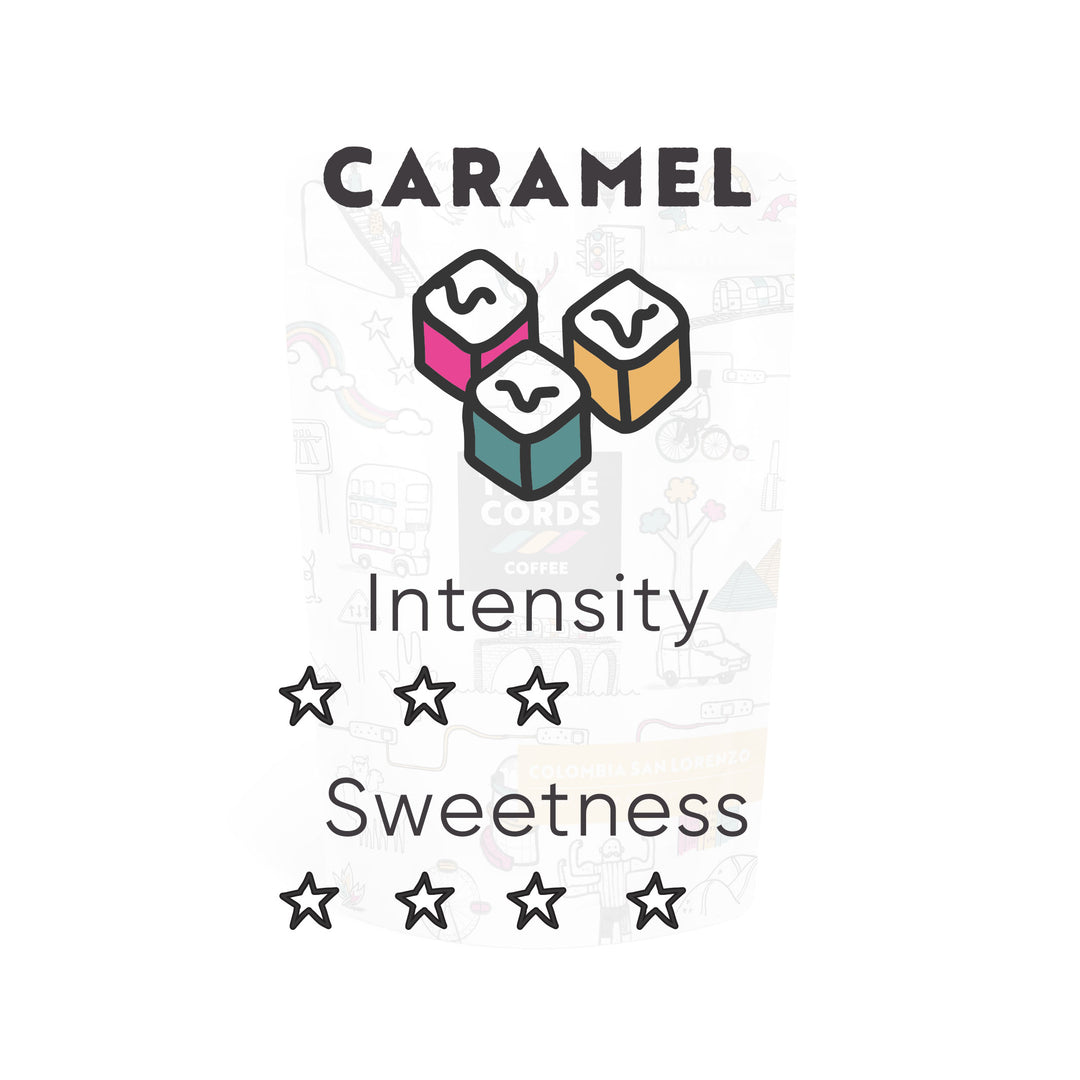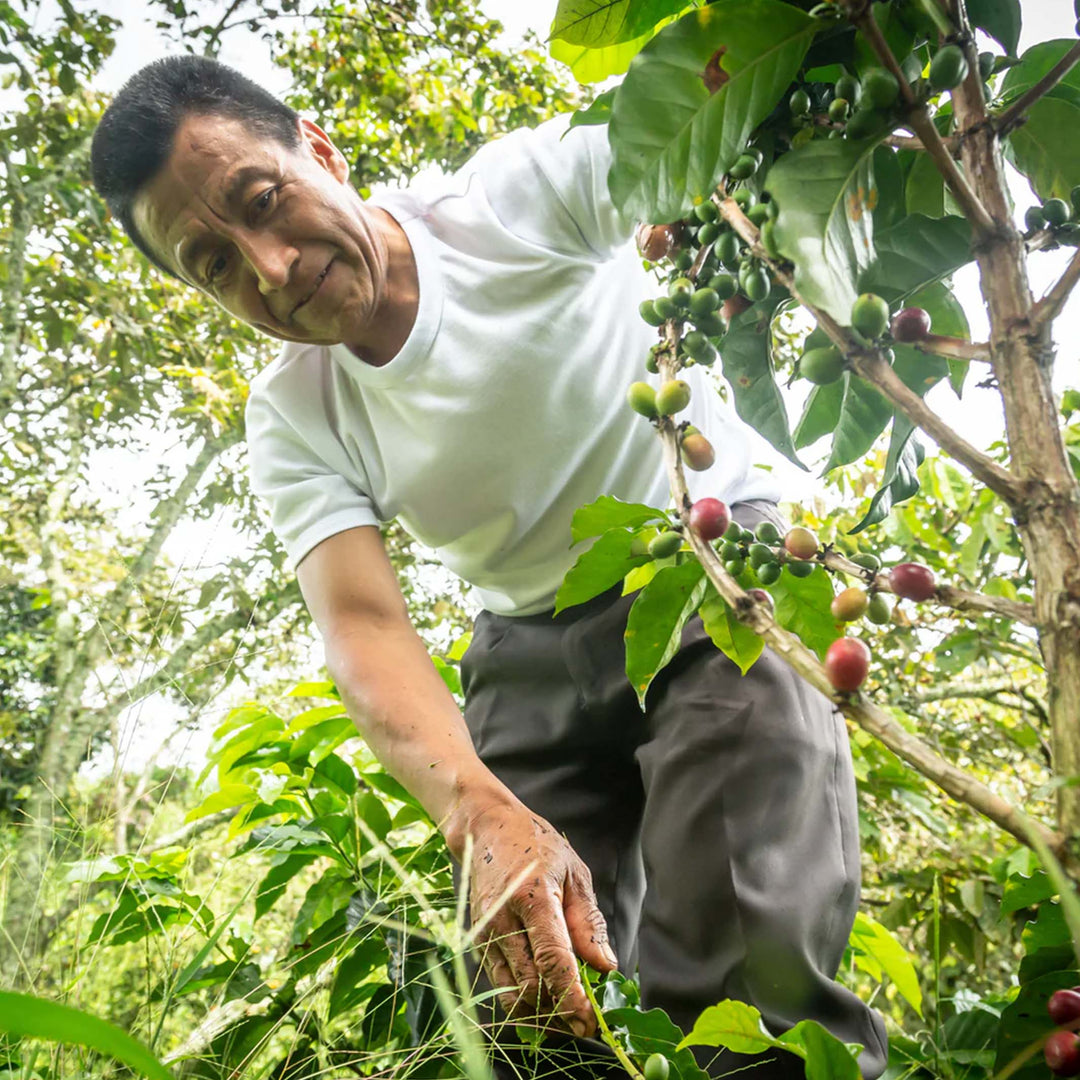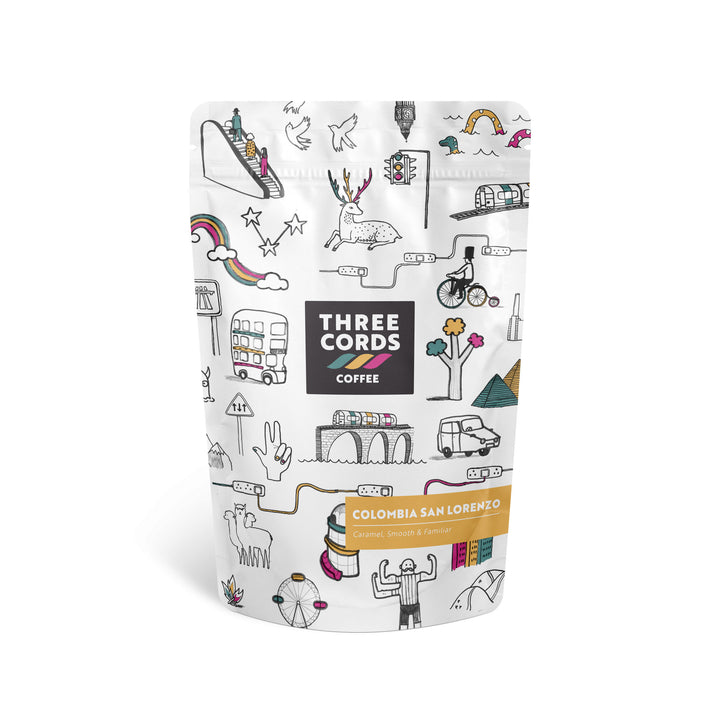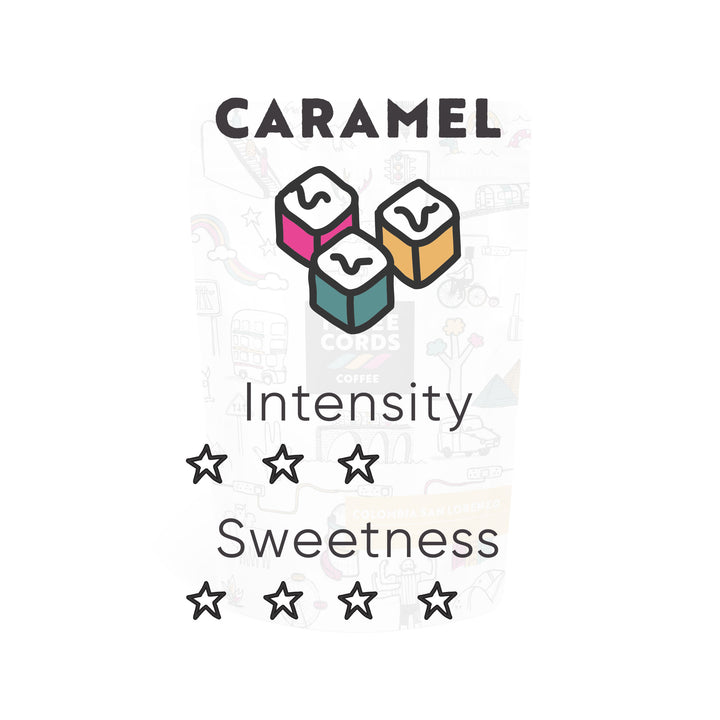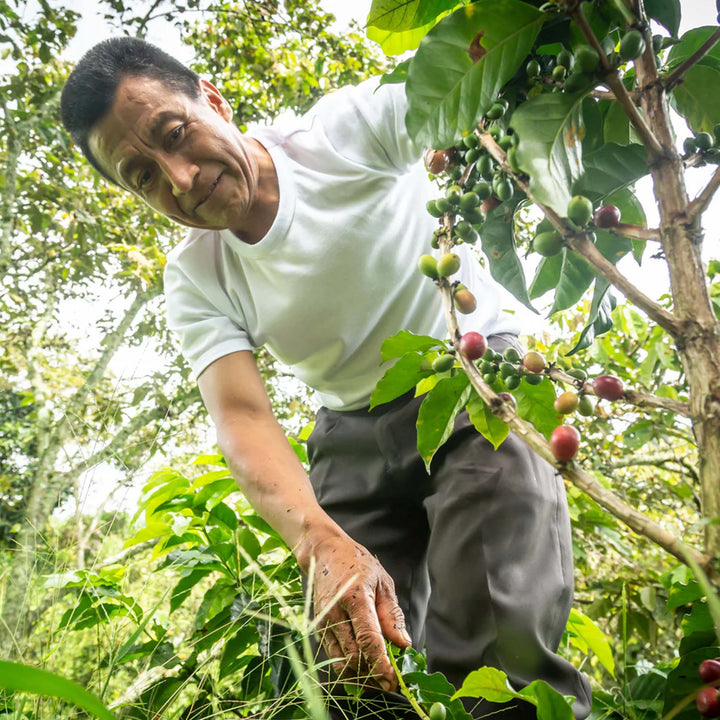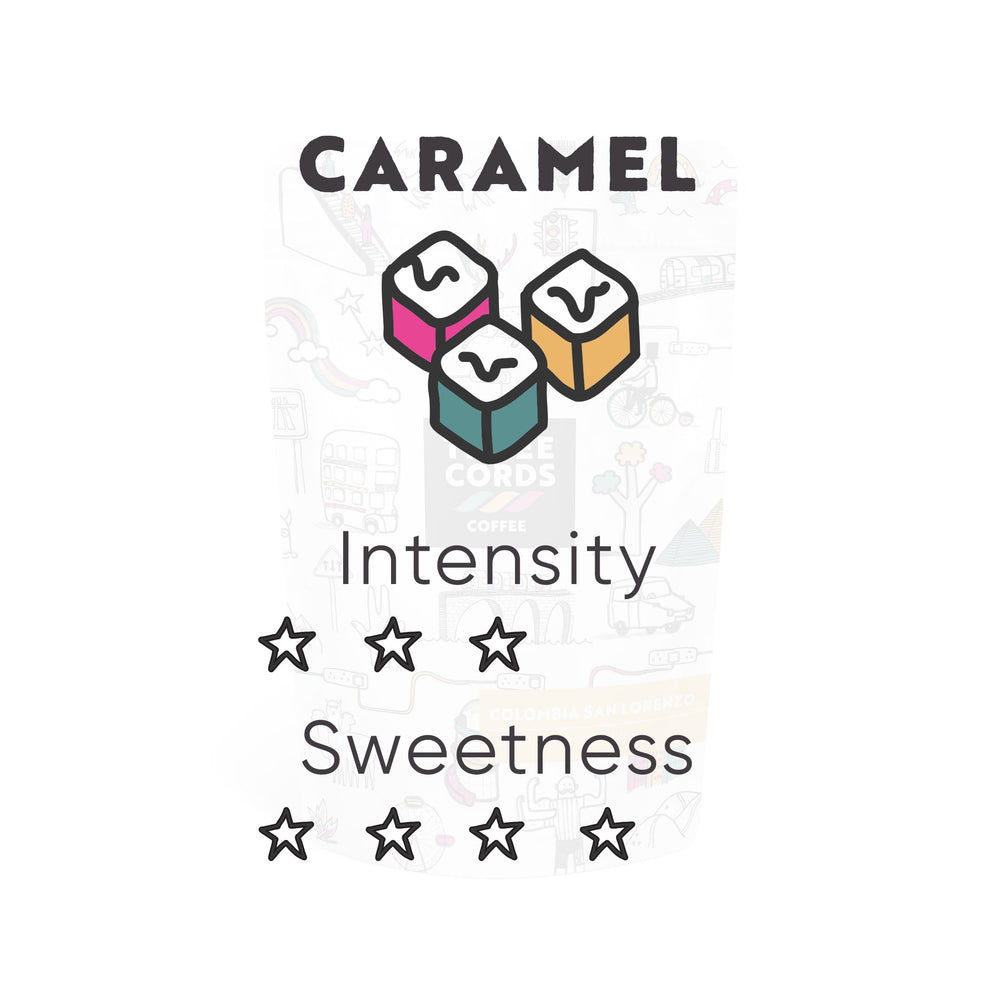Colombia San Lorenzo
CURRENTLY SERVING
Country: ColombiaProducer: San Lorenzo
- Free shipping on orders over £35
- In stock, ready to ship
- Inventory on the way
Process: Washed
The San Lorenzo Farm
This producer group is part of the Cooperativa de Caficultores de Alto Occidente de Caldas which was established in 1964. The San Lorenzo indigenous group are based in the Rio Sucio municipality of Caldas where there are 11,500 inhabitants with 1,150 farmers growing and producing coffee within the 21 communities. This region until recently was heavily inhabited by the FARC, ELN, Paramilitary groups and guerrillas who looked to control this central corridor in Colombia.
Each farmer has approximately 0.5 Ha of land in which they have about 2500 coffee trees. During the harvest the families will work with their neighbours to select ripe cherry before de-pulping in micro-beneficios where they will then de-pulp and ferment the coffee in water for 16 -24 hours depending on the weather. The coffee is then washed and then put out to dry on small drying patios on the roofs of the houses where they will dry it for between 8 – 14 days depending on the weather. They then deliver it to the Cooperative where it is assessed and categorised before being allowed to rest and then milled for shipment
The Caldas Department, Paisa Region Region
San Lorenzo is part of the Cooperativa de Caficultores de alto Occidente de Caldas. This is an Indigenous group of producers located in the Caldas region in the central corridor of Colombia. The Indigenous people of Colombia believe in Pacha Mama, their earth goddess, and see the land as a living being that they must protect. Their process is centred on preserving the natural environment, so they work to ensure the way they farm coffee has minimal impact on the land to ensure it remains the way it has always been.
During harvest season, families and neighbours pick ripe cherries to be sent to the wet mill, where they are floated to remove dirt and any unripe cherries. They go through the pulping and sorting machine before being transferred to fermentation tanks and held for 16-24 hours to remove the mucilage. The coffee is then washed before being spread out on small drying patios, usually on the roofs of houses, to dry. The beans are rotated regularly to ensure drying is even. When the desired moisture level is reached, it is delivered to the cooperative, assessed, dry milled, and prepared for shipment.


